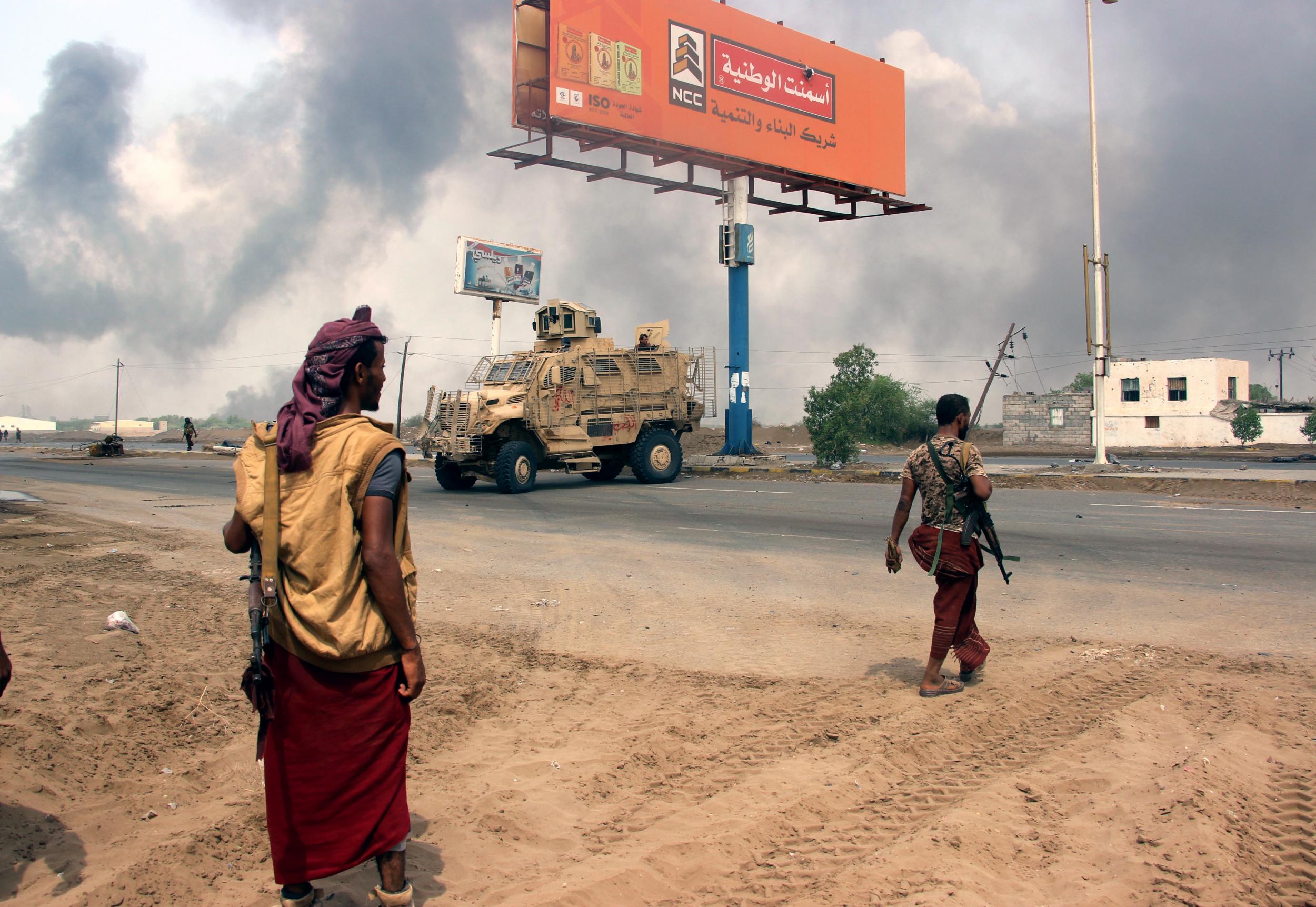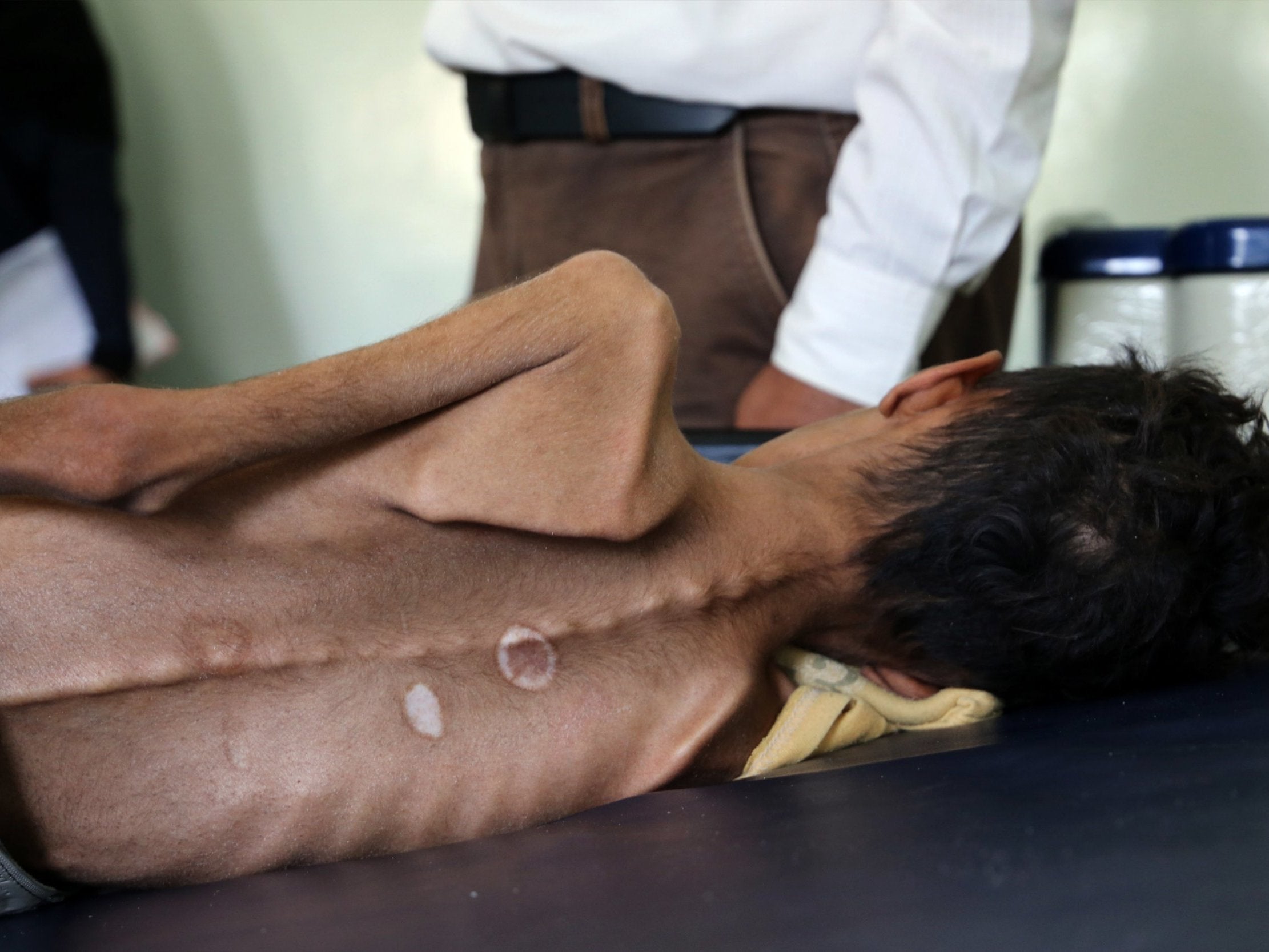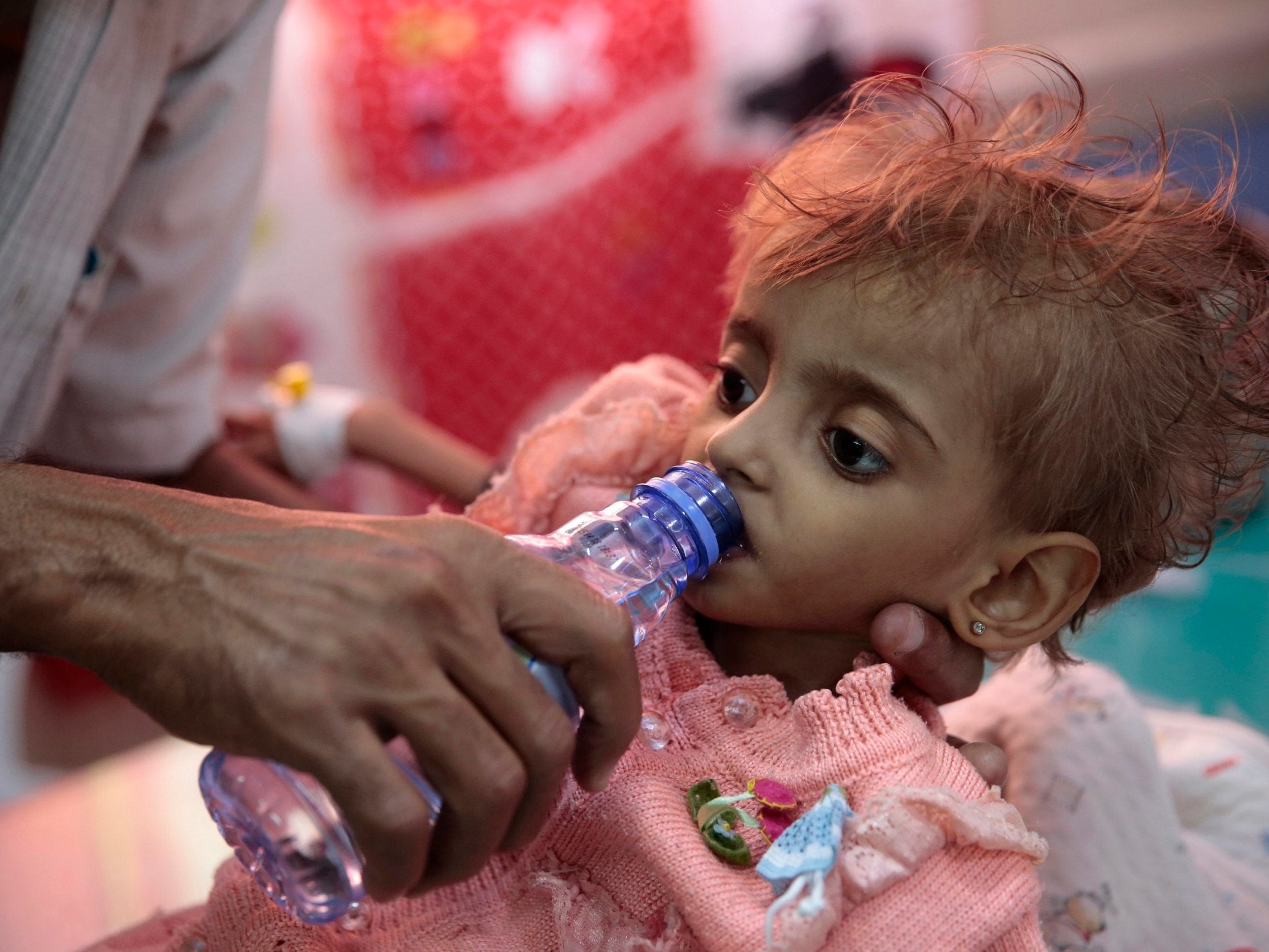Britain urges UN Security Council to back ceasefire in Yemen, in dramatic foreign policy U-turn
Jeremy Hunt says there is ‘small but real’ chance of ceasefire in Yemen as coalition sources claim they will halt a full offensive on Hodeidah if Houthis come to negotiating table

Britain will urge the United Nations Security Council to act over a devastating humanitarian crisis in Yemen, marking a stark reversal in British policy and the end to the UK’s controversial refusal to call on a Saudi Arabia-led coalition and the Houthi rebels to halt the conflict.
Theresa May faced accusations of trying to curry favour with Riyadh, one of the largest buyers of UK weapons, when she stopped short of backing a US call for a ceasefire last week and instead supported “de-escalation” in the country. This is despite the fact that the three-and-a-half year conflict between a Gulf alliance and Iran-backed rebels has sparked the largest humanitarian crisis in the world and pushed the country to the brink of famine.
On Monday foreign secretary Jeremy Hunt said there now “appears to be a window” for a peace deal. He said he agreed with Martin Griffiths, the UN’s Yemen envoy, “that the time was right for the council to act to bolster the UN-led process”. It indicated the UK would finally back a UN resolution to pile pressure on both sides.
“For too long in the Yemen conflict both sides have believed a military solution is possible with catastrophic consequences for the people. Now for the first time there appears to be a window in which both sides can be encouraged to come to the table, stop the killing and find a political solution that is the only long-term way out of disaster,” the foreign secretary said in a statement.
He added: “The UK will use all its influence to push for such an approach … There is a small but real chance that a cessation of hostilities could alleviate the suffering of the Yemeni people. This must be the first priority as we seek to put in place a longer-term solution.”
UN secretary general Antonio Guterres on Friday called for a halt to violence in Yemen to pull the country back from a “precipice” and build momentum towards talks on ending the war.
Ms May had however told parliament a few days beforehand that while she supported calls for “de-escalation,” a nationwide ceasefire would only have an impact “if it is underpinned by a political deal between the conflict parties”. Since the war erupted in the spring of 2015, the UK has authorised the sale of $5bn (£3.8bn) worth of arms to Saudi Arabia, sparking calls for an end to the weapons deals.
The war in Yemen erupted in the spring of 2015 when Gulf countries, including Saudi Arabia and the United Arab Emirates, began a bombing campaign to oust the Iran-backed Houthi rebel group, that had swept control of the country ousting the recognised president Abedrabbo Mansour Hadi.
Well over 10,000 people are been killed in the conflict, and two-thirds of Yemen’s 28 million-strong population rely on aid to survive, according to the UN, which has warned that as many as 13 million people could die from starvation.
Aid agencies have accused both sides of creating the humanitarian crisis. The Saudi-led coalition has faced allegations it has bombed civilian infrastructure and impeded the delivery of food and medical supplies because of a crippling land, sea and air blockade. The Houthis meanwhile have been accused of bombing aid convoys, intercepting supply chains, laying thousands of landmines and laying siege to pro-government areas.
The United Nations Children’s Fund regional director said over the weekend both sides were making it “impossible” to deliver and distribute much-needed humanitarian aid to the country, which will lead to famine.
Focus has now been drawn to the Red Sea port of Hodeidah where tens of thousands of Yemeni government troops are rallying for an expected offensive to retake the strategic city from the rebels. More than 150 combatants were killed over the weekend from both sides as fighting flared around the port.

A source within the coalition told The Independent the Gulf alliance would hold off on fresh fighting in Hodeidah if the Houthis come to the negotiating table.
The last series of talks collapsed in September. However, US secretary of defence Jim Mattis last week set a deadline of 30 days to begin a fresh round of negotiations.
The Gulf coalition source said they were entering the “endgame” and that should the Houthis refuse to participate, the alliance would not hesitate to restart Hodeidah offensive operations.
“To facilitate the UN special envoy’s work over the next 30 days, the coalition will hold a mainly defensive posture,” the source told The Independent.
“Right now in Hodeidah the coalition is reinforcing its position on the ground to protect troops and assets and to enlarge the security perimeters. But it will, as necessary, respond to any Houthi Attacks. We will maintain the option to renew offensive operations quickly.”
The sources acknowledge that the humanitarian situation in the country is “completely intolerable”.
“We are creating space for UN envoy to get some quick momentum. Next move is up to Houthis to de-escalate in turn and commit to new talks in Sweden.”
The Houthis meanwhile blasted the US calls for peace as “disingenuous” because of an uptick in military operations by government forces over the weekend.
“We regard the military escalation as proof of the disingenuousness of American calls for an immediate halt to the fighting, which are no more than an attempt by the US to pose itself as a neutral mediator while it is [in fact] the true leader of the war,” Mohammed Ali al-Houthi, the head of the rebels’ interim Supreme Revolutionary Committee, said on his Twitter account on Monday.
He added: “The coalition of the US-Saudi-Emirati aggressors has launched an intense military escalation to invade the city of Hodeidah. And when it failed to achieve any progress in the field it launched airstrikes on residential areas and committed new massacres against civilians.”
Aid agencies have warned of a devastating humanitarian crisis if the offensive does go ahead.
On Monday, Save the Children said it could put tens of thousands of children in the line of fire and further choke delivery of food and medicine to the country where they estimate extreme hunger and disease is already killing an average of 100 children a day.

“Every convoy blocked from the port or unable to leave it because of the violence means more malnutrition and more children dying needlessly,” the group said.
They added: “The weekend’s attacks show that what world leaders say have no meaning if they’re not backed up by concrete actions.”
Join our commenting forum
Join thought-provoking conversations, follow other Independent readers and see their replies
Comments
Bookmark popover
Removed from bookmarks